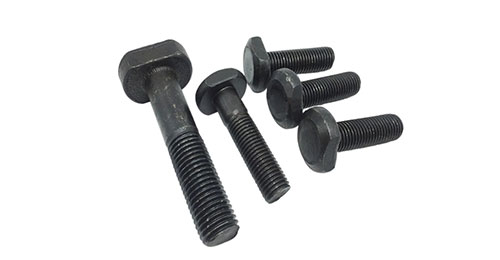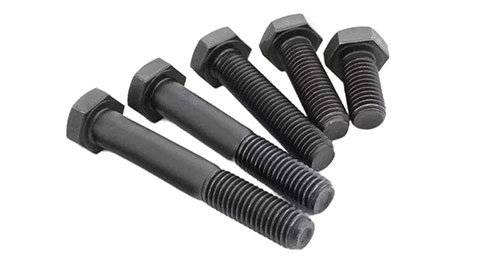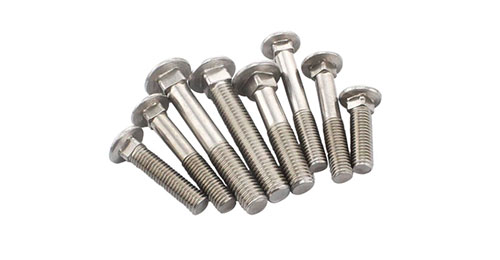Our bolts are used by a broad range of industries requiring assemblies and fastening applications. These threaded fasteners can connect machine parts, mount equipment, and more. As a removable fastener, they also facilitate the regular maintenance and inspections that keep equipment running longer.
One of the basic components of any construction job, from a simple repair to a full large-scale build, the importance of using the proper bolts cannot be overstated.
Bolt head options range from totally flat heads, which are flush to the surface, to contoured, uneven heads, to dome heads. DFM Rapid can provide parts in all material grades, to your dimensional specifications exactly per blueprint or sketch.
Types of Bolts
Heavy Hex Bolts
Heavy Hex Bolts are designed for use in a variety of high temperature, high strength industrial applications, such as with steel fabrication and general construction. They feature a thicker head than standard or regular hex bolts, and offer a greater bearing surface that distributes the clamping load over a wider area. Heavy hex bolts can be made with a few different materials including low and medium carbon steel, alloy, and stainless steel.
Carriage Bolts
Carriage bolts most commonly have a smooth, domed head with a square section underneath that pulls into the material to prevent spinning during installation. This feature allows for the bolt to be self-locking when installed through a square hole in a metal strap, or a round hole in most woods. It can be installed with a spanner or wrench.
T Head Bolts

T-Head bolts are mainly used with a nut to joint an object with a T shaped slot so that the head of the bolt sits flush or below the material surrounding it. T-head bolts can come in any requested coating or plating such as zinc, black oxide, silver and many others.
Hex Flange Machine Bolts
Flange machine bolts, also known as hex flange machine screws, incorporate a bearing face, or flange, that extends beyond the diameter of the head. This flange distributes the clamp load over a larger area. Some flange machine bolts feature locking serrations on the face of the flange that are designed to “lock,” or bite, into the material being fastened to provide resistance to loosening.
Bent

Bent bolts can be further broken down into the following categories based on the way they are bent and their intended application:
- Eye bolts. The head of these bolts forms a full circle-like the eye of a needle-allowing for the attachment of cables, ropes or other fasteners.
- Hook bolts. The unthreaded end of this bolt forms a hook shape that may range from a simple L-shape to more complex custom bends.
- J-bolts. These J-shaped bolts typically act as a hook, facilitating easy attachment and detachment from other components or structures, often in combination with eye-bolts.
- U-Bolts. This bolt is bent into the shape of a U with both ends threaded, enabling users to secure pipes or tubes to other components or structures.
- Anodizing – Aluminum, hard oxide surface, excellent corrosion resistance
Bolt Head Types
There are a variety of bolt heads available. Each type of head accommodates different tools to hold the bolt in place or eliminate the need for a tool during tightening.
The most common bolt head types include:
- Hex. The most common type of bolt head (replaced square bolt heads).
- Bent. Eye bolt, J-bolt, and hook-bolt heads accommodate quick attachment to other components and cables.
- Round. Round bolt heads usually require a screwdriver, Allen wrench, or Torx wrench to hold the bolt in place during tightening.
- Carriage. These and similar types of round head bolts have a square neck under the head which eliminates the need for a tool on the head of the bolt during tightening.
- T-Head. This type of head fits in a slot, eliminating the necessity for a tool during tightening.
- Countersunk. Various types of countersunk heads draw the head of the bolt into the attaching component so it is flush to the mounting surface.
Common Bolt and Nut Finishes
Bolts and nuts can be made of various materials such as steel, titanium or plastic. The finish or plating on a metal bolt or nut affects its look and durability. Below are some common finishes and benefits:
- Zinc – Most common, low cost, resists corrosion and rust
- Nickel – Very hard finish, higher investment, good corrosion resistance
- Chromium – Bright finish, good rust and corrosion resistance
- Chromate – Adds color, shine, superior rust resistance



